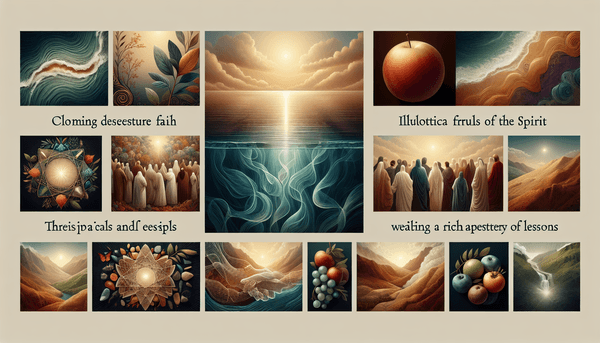Paul's Reflections on Weakness and Grace in 2 Corinthians
In his second letter to the Corinthians, Paul delves into the sufficiency of God's grace even in our weaknesses. He shares a profound personal testimony, revealing that his own trials allowed God's strength to manifest more fully in his life, as expressed in 2 Corinthians 12:9: 'My grace is sufficient for you, for my power is made perfect in weakness.' He also discusses the transformative power of the new covenant and the ministry of reconciliation, emphasizing that we are a new creation in Christ (2 Corinthians 5:17). Paul's reflections encourage us to embrace our vulnerabilities, knowing that it is through them that God's power shines brightest.
FAQ
Q: What is the Olivet Discourse and where can it be found?
A: The Olivet Discourse is a sermon given by Jesus on the Mount of Olives, where He discusses the signs of the end times and the destruction of the temple. It is found in Mark 13, as well as in Matthew 24 and Luke 21.
Q: What lessons can we learn from 2 Corinthians?
A: 2 Corinthians teaches us about the importance of reconciliation, the power of God's grace in our weaknesses, and the joy of generous giving. It also includes personal reflections from Paul on the challenges of his ministry.
Q: Why are the Psalms significant in the Bible?
A: The Psalms are significant because they express a wide range of human emotions, from joy and thanksgiving to sorrow and lament. They provide believers with words to express their deepest feelings and thoughts to God.
Q: How should a beginner approach reading the Bible?
A: Beginners might start with the Gospels to learn about the life and teachings of Jesus, then move on to Acts and the Epistles for early church history and apostolic guidance, and finally explore the Old Testament for its foundational stories and prophecies.






